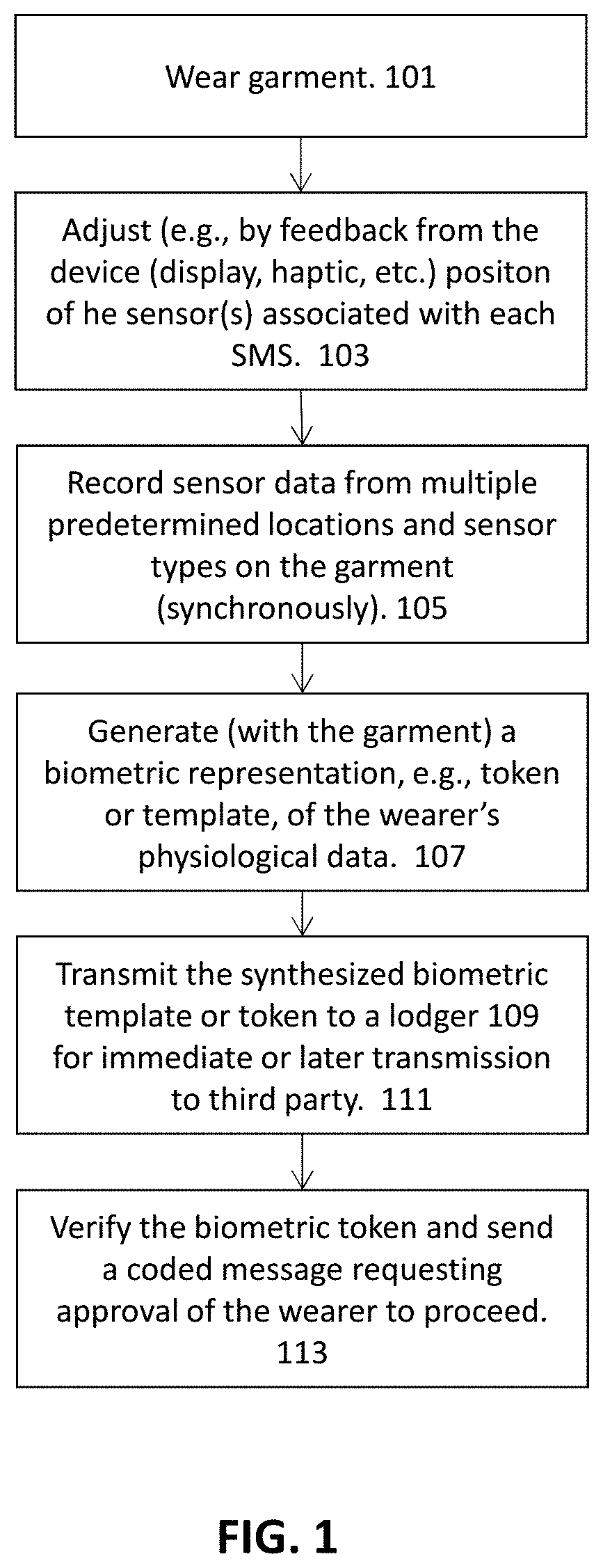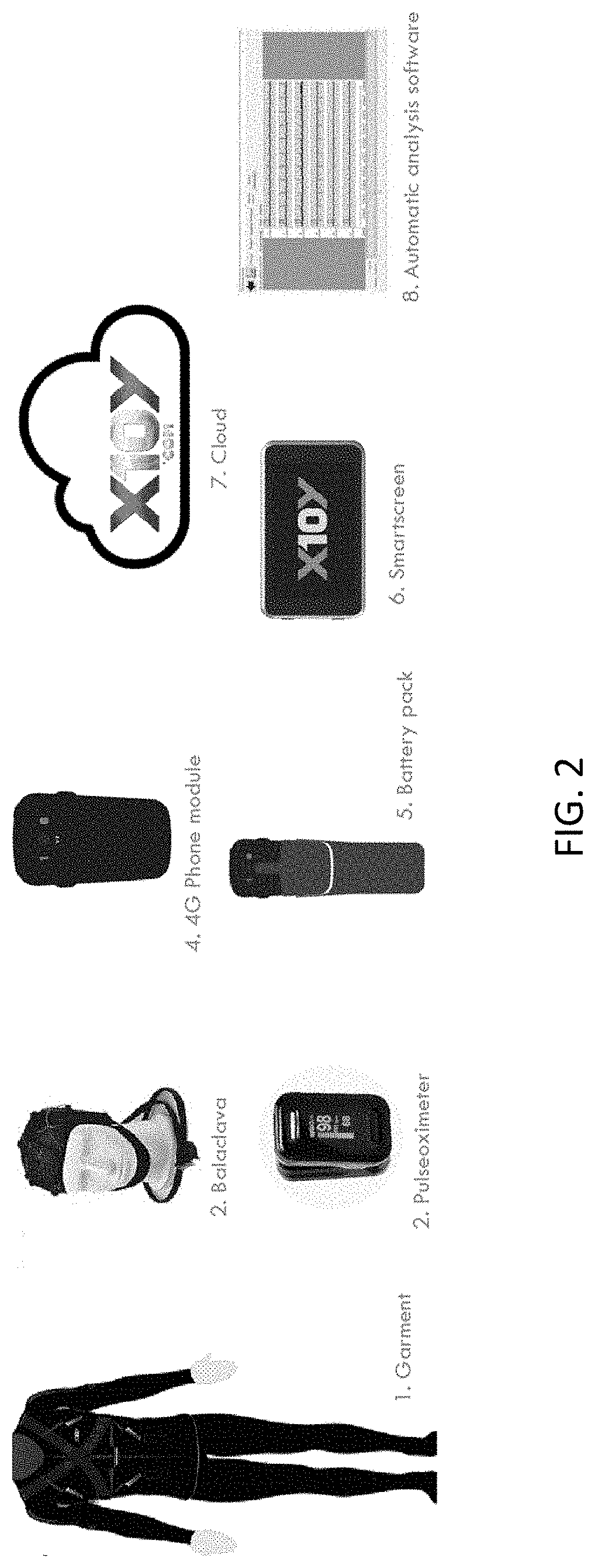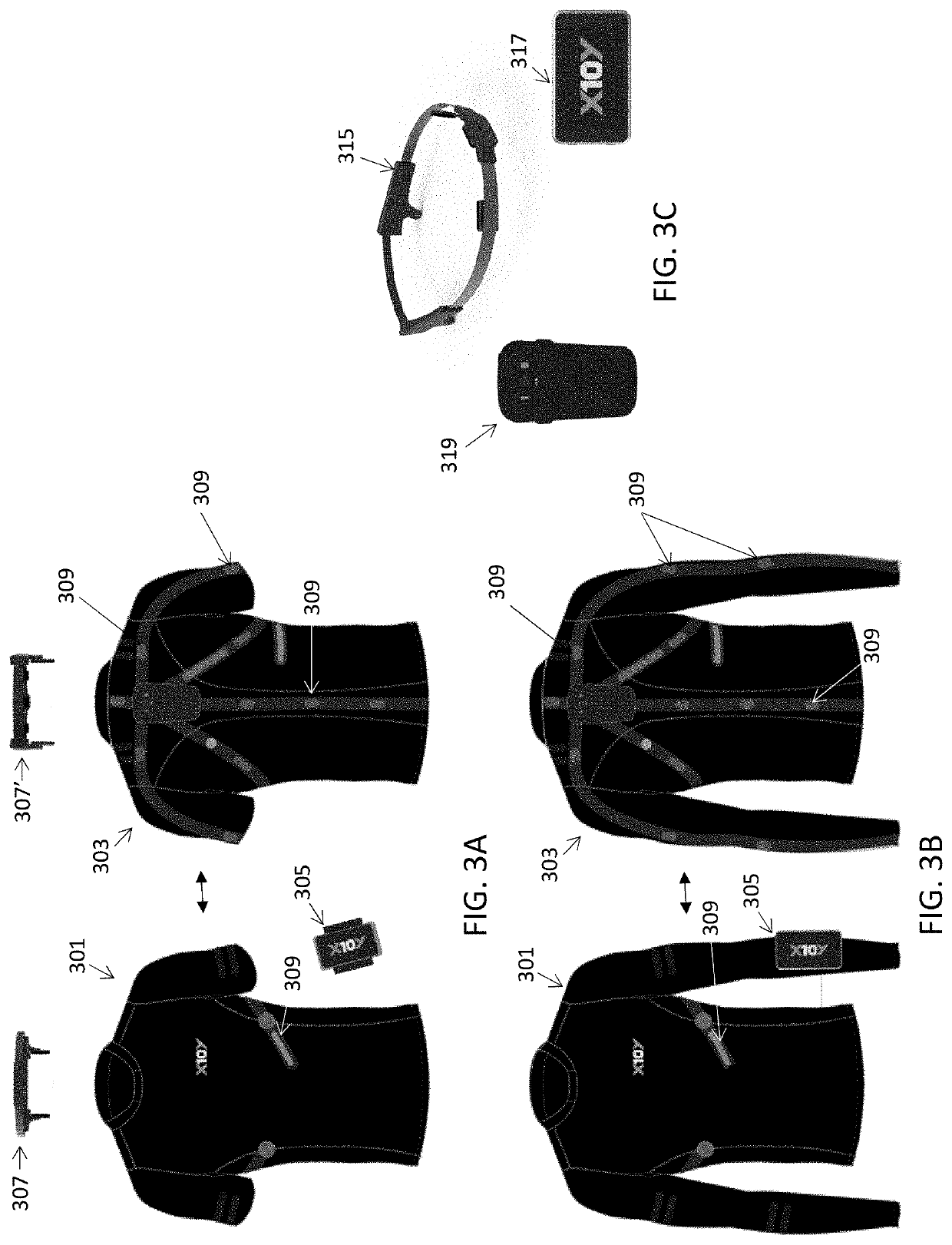Biometric identification by garments having a plurality of sensors
a biometric identification and sensor technology, applied in the field of biometric identification by garments having a plurality of sensors, can solve the problems of inability to easily change biometrics, inability to accurately measure, and inability to easily measure, etc., to achieve the effect of synthesis, close the divide gap, and easy measuremen
- Summary
- Abstract
- Description
- Claims
- Application Information
AI Technical Summary
Benefits of technology
Problems solved by technology
Method used
Image
Examples
examples
[0086]Previously described biometric authentication has typically been based on data derived from direct measurements of a part of the human body, like the DNA, fingerprint, retina, iris, face, ear, palm, the veins' pattern in the hand or in the wrist, etc. The heart activity has also been used for the person authentication, whether by capturing the electrical activity (ECG) or the sound produced by it (PCG). Photoplethysmography (PPG) has also been used for authentication. Vein patterns have also been used. In addition, it is also possible to perform biometric authentication based on behavioral characteristics of the user, which may be linked / coordinated by these physiological responses. For instance, gait, the way the user walks, signature and voice recognition, keystroke-based or by capturing the response of the user (e.g., EEG) to a given stimulus.
[0087]Typically, the raw signals captured from direct measurements of the user to be authenticated are characterized and authenticati...
PUM
 Login to View More
Login to View More Abstract
Description
Claims
Application Information
 Login to View More
Login to View More - R&D
- Intellectual Property
- Life Sciences
- Materials
- Tech Scout
- Unparalleled Data Quality
- Higher Quality Content
- 60% Fewer Hallucinations
Browse by: Latest US Patents, China's latest patents, Technical Efficacy Thesaurus, Application Domain, Technology Topic, Popular Technical Reports.
© 2025 PatSnap. All rights reserved.Legal|Privacy policy|Modern Slavery Act Transparency Statement|Sitemap|About US| Contact US: help@patsnap.com



